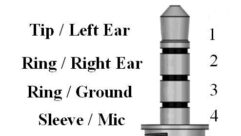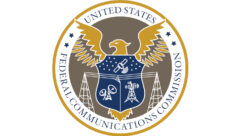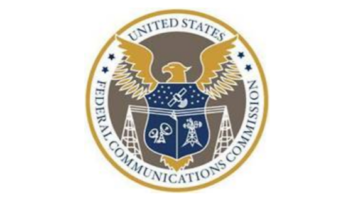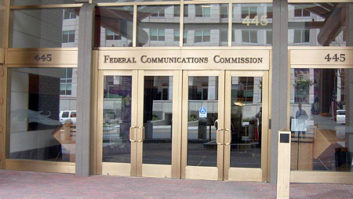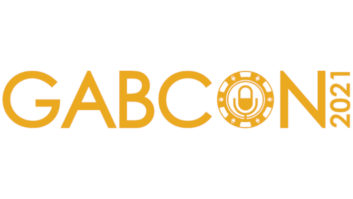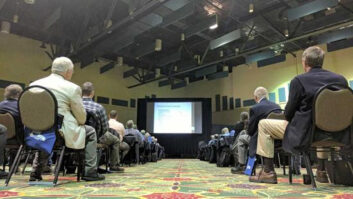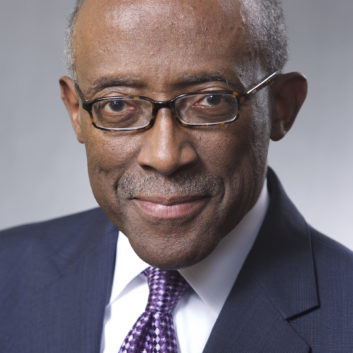
Jim Winston is president and founder of the National Association of Black Owned Broadcasters.
He was interviewed by Victor Bruzos, a 2021 law fellow at the Multicultural Media, Telecom and Internet Council (MMTC). Answers were edited for clarity and brevity. MMTC commentaries appear regularly in Radio World, which welcomes other points of view on industry issues.
Victor Bruzos: NABOB has been around for more than 40 years, please tell us about the association’s history, work, and core principles.
James Winston: NABOB was founded in 1976 after a series of conversations at the National Association of Broadcasters convention. A young lady who worked for NAB at the time, Patty Grace Smith (she went on to have a very successful career at the Federal Communications Commission and at the Department of Transportation), spoke to several different Black broadcasters and they all described similar problems to her; however, most of them did not know each other, and they assumed that they were experiencing these problems all by themselves.
She introduced a few of them to each other and when they realized they were all having similar problems, particularly with advertisers not understanding African-American consumers, they created NABOB.
NABOB was formed with two goals: to increase the number of African-American–owned radio stations and to improve the business climate in which they operate by making advertisers and advertising agencies aware of the business value of advertising on their stations…
We still have a very small number of African-American owners … approximately 200 radio stations about 35 TV stations, which is still a considerably small part of the industry. …
Moreover, we advocate on behalf of our members within the advertising industry. … Many corporations now realize that, in spite of past efforts, there’s still a great lack of diversity, equity and inclusion in corporate America. And we have seen in recent months, several corporations specifically say they would like to do more business with Black-owned media companies. We are working with several companies to try to make that happen.
Bruzos: What is NABOB’s position on H.R. 4871, the Expanding Broadcast Opportunities Act of 2021, introduced in August by Rep. G.K. Butterfield (D–N.C.) and S.2456, the Broadcast VOICES Act, its Senate companion bill introduced by Sen. Gary Peters (D–Mich.). What kind of impact will it have for minorities and women wanting to gain entry into the media business?
Winston: The tax certificate program is a very interesting program. … NABOB was instrumental in getting that program adopted in 1978 as part of what the FCC called its minority ownership policy.
When the FCC had a conference in 1977 looking for suggestions about how to promote minority ownership, one of the things NABOB explained was that we weren’t getting phone calls telling us about stations that were available. Stations were mostly being sold through an “old boys” network that didn’t include NABOB members.
With the tax certificate program … if you sold a radio, television or (eventually) cable TV system to a company owned and controlled by minorities, you got a deferral of the capital gains tax. … Owners who never contacted NABOB members were now contacting them regularly saying, please buy my station.
In 1978 when the policy was adopted, African Americans owned 37 radio stations and one TV station, but by the time the policy was eliminated in 1995 there were 250 African-American–owned radio stations and 25 African-American–owned TV stations. That growth was primarily due to the tax certificate policy. Since the elimination of the policy in 1995 we have actually seen our numbers of radio stations and TV stations decrease.
NABOB has worked to get that policy reinstated for many years and we’re very hopeful the bill introduced by Congressman Butterfield and Senator Peters will get favorable consideration and bring that policy back. Additionally, the new policy is being proposed for small businesses, which include minorities and women-owned businesses, so we think it will have a broad impact in a number of areas and will significantly increase diversity within station ownership.
We still have some owners that took advantage of the program the first time around who would love to see it come back so they have a chance to use it again. The support is very high among our NABOB members for getting it reinstated.
Bruzos: Geo-targeting is another area of interest to minority broadcasters. If the FCC allows FM boosters to have separate programming and to engage in geo-targeting, what would be the impact on minority-owned stations?
Winston: The geo-targeting proposal is designed to enable radio stations to target smaller areas within their service area. For specialized programming, the geo-targeting program would stay the same, but an expanded program would allow for more local announcements. … So, for example, you could allow for different public service announcements, traffic announcements and, of course, commercials. …
For example, I might have a restaurant and my patrons come from an area that’s within a specific neighborhood and advertising to communities 10 to 20 miles away would not be cost effective for me; in that instance geo-targeting might be exactly what I need.
One other interesting thing I just learned about geo-targeting is that because it uses FM boosters, it can actually improve the service quality for FM boosters by directionalizing the signal. … I think that is a further reason for the FCC to grant the rule change.
Bruzos: What are your thoughts on the FCC incubator program?
Winston: NABOB has advocated for this program for a very long time, and I think it has the potential, if implemented properly, to be very positive for minority station owners and prospective owners.
The problem we had with the policies adopted by the FCC was the manner in which an incubating company could use the benefit could be contrary to the value of the incubated station. For example, a company could incubate a station in a very small market that had a number of stations and then use the waiver of multiple ownership rules the policy provides to gain a new station in a much larger market. That would not be in the public interest. It wouldn’t be a good thing for minorities, certainly, if someone were allowed to exceed the ownership limits in a market where they already had stations competing with a minority-owned station.
We could have a net decrease in minority ownership as a result of a badly used incubator program, so we’re hoping the FCC, as it the looks at its ownership rules in the current quadrennial review, will consider whether or not it should look to change the incubator program.
I think it has great potential, but our members would like to see it implemented in a in a more favorable manner.
Bruzos: During this ongoing pandemic, how have NABOB members been affected and what have they learned?
Winston: In the early days of the pandemic, our members were hit really hard because advertisers dwindled. If you shut down your business, you have no reason to advertise. We saw many of our stations lose advertising dollars in the 30 to 50 percent range over the first few months of the pandemic.
Fortunately, as people started getting back out into public and stores learned to adjust their sales so that people could pick up products on the curb or they added outside eating areas, the economy started slowly coming back and we were able to withstand the impact.
Fortunately, I’m not aware of any NABOB station that went out of business as a result of the pandemic, but they certainly had a very, very rough time and even now, of course, with the delta variant. We see that we’re not back 100 percent to where we want to be, but we’ve made a great deal of progress from where we were a year ago, and I know our stations will come back strong.

